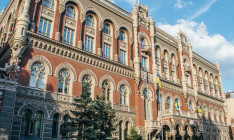Onur Loses Appeal in the M-05 Highway Case: Why a $27 Million Claim Was Rejected

A Turkish construction giant completed part of a major Ukrainian highway project — but never got paid. A first-instance court awarded them over $27 million. Then the appeals court reversed everything. Behind the legal fight lies a complex web of political loyalty, international financing, and turf wars in Ukraine’s road construction cartel.
In 2020, the Ukrainian government launched a major road infrastructure upgrade on the M-05 highway, the central artery connecting Kyiv to the Black Sea port city of Odesa. The tender was awarded to Onur Taahhut Tasimacilik Insaat Ticaret Ve Sanayi A.Ş., a Turkish construction company with a longstanding presence in Ukraine.
The contract, valued at €65 million, was funded through loans from the European Bank for Reconstruction and Development (EBRD) and the European Investment Bank (EIB). Because of that, the procurement bypassed Ukraine’s public bidding system, Prozorro, and followed international procedures.
But instead of a streamlined project, Ukraine ended up with stalled construction, canceled financing, and a court battle that would expose internal rifts within the country’s infrastructure elite.
A Project Begins — and Halts
Onur’s winning bid edged out its nearest competitor by a mere €140,000 — less than 0.2%. But soon after, the EBRD raised concerns about irregularities in the bid submission. According to internal investigations, Onur allegedly altered a page in its bid proposal after submission, replacing the pricing section to improve its standing.
In response, both the EBRD and EIB terminated the funding in late 2020. The project came to a halt. By that time, however, Onur had already completed approximately €11 million worth of work.
Court Battle Begins
Onur first sued Ukraine’s Ukravtodor, the state road agency responsible for the contract. When Ukravtodor was dissolved and replaced by the State Agency for Restoration and Infrastructure Development, the legal battle continued against the successor institution.
In June 2024, a commercial court in Kyiv ruled in Onur’s favor. The judge, Oksana Marchenko, held that the state’s lack of financing did not negate its contractual obligations. Ukraine was ordered to pay:
- €21.25 million in principal debt,
- ₴172.45 million (approx. $4.3 million) in VAT,
- and over ₴1 million ($25,000) in court fees.
The judgment followed strict contractual logic: work performed must be paid, regardless of budgetary constraints.
Appeal Reverses the Outcome
But in March 2025, the Northern Commercial Court of Appeal reversed the ruling. The appeals panel concluded that Onur had failed to provide admissible and sufficient evidence to justify the claimed amount.
Key findings included:
- The contract had already been frozen in 2020,
- No legally valid basis for the VAT and debt claims had been provided,
- The first-instance court had relied on inadmissible documents.
The result: Onur’s entire claim was rejected, and the company was ordered to reimburse ₴1.59 million ($40,000) in court fees.
Political Backdrop: The Road Cartel and Presidential Ties
Beyond the courtroom lies a deeper story — one involving political favoritism, competing oligarchic interests, and insider dynamics within Ukraine’s infrastructure industry.
According to Ukrainian investigative outlet Nashi Groshi, the original whistleblower in the tender fraud case was Oleksandr Kubrakov, then-head of Ukravtodor and later Minister of Infrastructure. Kubrakov reportedly notified the EBRD of the violations and removed four officials involved in the procurement — before leaking the documents to the press.
Why would Kubrakov undermine a company operating with presidential backing?
According to multiple sources, Onur enjoyed a special relationship with President Volodymyr Zelenskyy through the Chetindzhaviz family, the company’s owners. The Turkish firm allegedly had direct personal access to the President, which made them an unwanted presence for other major players in Ukraine’s so-called “road cartel.”
Chief among those players: Avtomagistral-Pivden, a Ukrainian construction company that won over 25% of road contracts during 2020–2021.
By leaking damaging information about Onur’s tender, Kubrakov may have achieved two objectives:
- Discredit Onur in the eyes of President Zelenskyy, undermining their influence,
- Clear the way for Ukrainian firms to take over Onur’s 15% share of the lucrative highway market.
Who Really Won?
Legally, the State Restoration Agency avoided paying out a massive claim — a short-term budgetary win. Onur, by contrast, suffered a complete legal defeat, reputational harm, and lost access to international financing.
Journalistic investigations further tarnished Onur’s image, linking the company to informal meetings and even vacation stays with the President, though these claims remain unverified.
But for Ukraine’s business climate, the outcome may prove costly.
Unanswered Questions. Should a contractor be paid for completed work, even if funding falls through? If one court upheld the claim, why did another reverse it entirely? And most critically: will this become a warning sign for foreign investors, showing that even a signed, internationally-backed contract in Ukraine offers no payment guarantees?
As these questions remain unresolved, the Onur case serves as a microcosm of the risks that come with doing business in Ukraine — where political proximity, opaque tenders, and infighting can determine success or failure more than legal merits.










 of the agreement of syndication with Financial Times Limited are strictly prohibited. Use of materials which refers to France-Presse, Reuters, Interfax-Ukraine, Ukrainian News, UNIAN agencies is strictly prohibited. Materials marked
of the agreement of syndication with Financial Times Limited are strictly prohibited. Use of materials which refers to France-Presse, Reuters, Interfax-Ukraine, Ukrainian News, UNIAN agencies is strictly prohibited. Materials marked  are published as advertisements.
are published as advertisements.